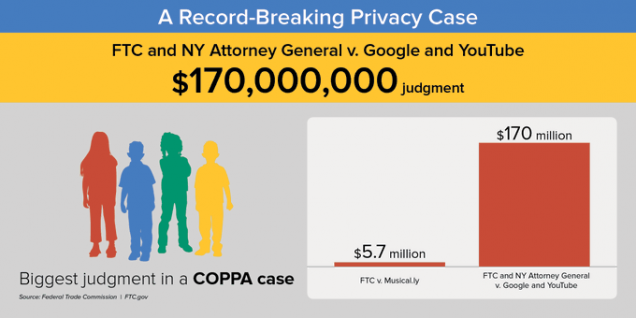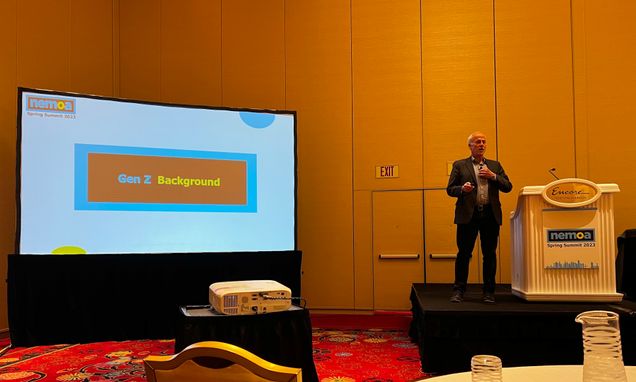Digital Customer Engagement
Digital technologies have transformed the way we research, evaluate, buy and use products and services. The purchase funnel is no longer linear. Customers learn about new products and services through online research, from a variety of marketing touch points, and from other consumers. Manufacturers and service providers engage customers to co-create products, experiences, and brand meaning. Marketers engage customers via multi-channel campaigns that meet them wherever they happen to be on the web.
The Digital Business Institute supports research related to multi-channel digital engagement strategies that engage customers prior to purchase, encourage and facilitate purchase and build ongoing and long-lasting relationships with customers post-purchase.
Digital Customer Engagement Faculty Fellow
Sponsored Faculty Research – Digital Privacy
The Digital Business Institute is supporting innovative digital privacy research with our Marketing Faculty. Our Institute Research Assistants are helping Garrett Johnson, Assistant Professor, Marketing, build a detector that scans websites to understand which websites are using Privacy Sandbox technology and how. And we are also helping Professor Johnson and Professor Tesary Lin, Assistant Professor, Marketing, measure the impact of the YouTube COPPA settlement on the production of Made-for-Kids content. The title of the paper is, COPPAcalypse? The Youtube Settlement’s Impact on Kids Content. Read the abstract.

Sponsored Research – Gen Z Online Shopping Research Lab
Professor Howard is leading a longitudinal study on the generational differences in online shopping attitudes and behaviors. There is evidence that Gen Z, for example, care much less than Boomers about having their personal data tracked as long as they benefit by the improved relevance. The inaugural survey is being fielded in the Spring of 2023, with an initial paper expected in the Fall. Initial findings were presented at the NEMOA (National Etailing and Mailing Organization of America) Spring 2023 Summit. Read more.

Generative AI Research Lab
The Digital Business Institute will launch a Generative AI Research Lab in 2023, to be led by Professors DK Lee and Gordon Burtch, along with a post doc and student teams, to advance the responsible application of generative AI in business. Potential areas of focus include:
Personalized product review generation
Research Update from Professor Gordon Burtch
Kelli Questrom Associate Professor in Management and Digital Business Institute Fellow Gordon Burtch talks about his research:
“I have a lot of active research streams, but my primary interest is on the design of digital platforms, and assessing the value of features, mechanisms or policies through empirical studies, whether using archival data or field experiments. I’ve a lot of on-going work wherein I examine the introduction of particular features or mechanisms that affect user behavior. For example, in a study that was recently published in Management Science, some co-authors and I ran a field experiment wherein we randomly allocated “peer awards” to users’ posts on Reddit in creative writing communities, to examine how those types of awards influence sustained participation, creativity, etc. in the production of user-generated content.”
Management Science, June 2021
How Do Peer Awards Motivate Creative Content? Experimental Evidence from Reddit
Other studies by Gordon Burtch :
Examining the Effects of Demand Information Disclosure on Congestion and Matching Efficiency in Online Dating. In this study, an experiment was run on a dating platform, randomly providing some users with information on peer availability (how many dating requests has the peer received recently) to see if this can help reduce congestion on the platform (a small subset of users getting an excess of attention), the paper shows that it works, making the distribution of attention received “flatter,” more evenly spread out across users.
An experiment with IndieGoGo about privacy features and monetary donations on crowdfunding platforms:
The Hidden Cost of Accommodating Crowdfunder Privacy Preferences: A Randomized Field Experiment
A field study with an online retailer about how best to solicit reviews from consumers: Stimulating Online Reviews by Combining Financial Incentives and Social Norms
An experiment with a UGC platform focused on cooking / crowdsourced recipes on how to motivate additional content production through feedback provision: Motivating User-Generated Content with Performance Feedback: Evidence from Randomized Field Experiments.
